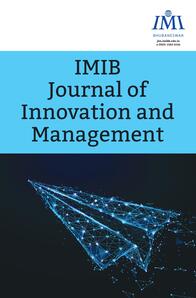
1Department of Economics, Ravenshaw University, Cuttack, Odisha, India
2Department of Economics and Development Studies, Central University of Jharkhand, Cheri-Manatu, Ranchi, Jharkhand, India
3Department of Political Science, Govt. Women’s (Degree) College, Baripada, Odisha, India
Creative Commons Non Commercial CC BY-NC: This article is distributed under the terms of the Creative Commons Attribution-NonCommercial 4.0 License (http://www.creativecommons.org/licenses/by-nc/4.0/) which permits non-Commercial use, reproduction and distribution of the work without further permission provided the original work is attributed.
In this 21st century, the aggregative model of democracy would not be able to address the complex problem of a plural society where structural inequality is rampant. Hence, it is imperative to unearth a convenient way of the decision-making process through various social and economic empowerment factors, which enhance women’s participation and awareness despite structural inequalities deeply rooted in Indian society in general and Odisha in particular. This article seeks to highlight the factors determining women’s empowerment and identify issues related to the management of the enterprise. We have surveyed a hundred women entrepreneurs in the Ganjam district of Odisha, India, for the study. We have used multiple regression and Poisson regression models to identify the key determinants of women’s empowerment. The study found that domestic decision, autonomy, self-confidence, business skills and public deliberation are significant determinants of the number of indicators adopted to enhance the overall empowerment index. The multiple regression models found that women’s leisure, unpaid work, self-confidence, business skills and social status positively affect empowerment. The study found that micro-entrepreneurship is successful in the Ganjam district of Odisha. Hence, it is imperative to empower women through public deliberation and motivate them to participate in micro-entrepreneurship.
Aggregative model of democracy, micro-entrepreneurship, Palli Sabha, public deliberation, women empowerment
Akram, S., Shaheen, I., & Kiyyani, S.M. (2015). Socio-economic empowerment of women through micro enterprises: A case study of AJK. European Scientific Journal, 11(22). https://eujournal.org/index.php/esj/article/view/6054
Amrita, K., Garg, C.P., & Singh, S. (2018). Modelling the critical success factors of women entrepreneurship using fuzzy AHP framework. Journal of Entrepreneurship in Emerging Economies, 10(1), 81–116.
Arif, S., Syukri, M., Holmes, R., & Febriany, V. (2010). Gendered risks, poverty, and vulnerability: Case study of the Raskin food subsidy program in Indonesia. SMERU Research Institute.
Asharani, S. (2016). An economic analysis of empowerment of women through micro entrepreneurship a study in Karnataka [Unpublished Doctoral dissertation]. University of Mysore.
Boansi, D., Tambo, J.A., & Miller, M. (2017). Analysis of farmers’ adaptation to weather extremes in West African Sudan Savanna. Weather and Climate Extremes, 16, 1–13.
Bushra, A., & Wajiha, N. (2015), Assessing the socio economic determinants of women empowerment in Pakistan. Procedia-Social and Behavioural Sciences, 177(4), 3–8.
Dangi, N., & Ritika, (2014). Women entrepreneurship and growth and performance of MSMEs in India. International Journal of Advance Research in Computer Science and Management Studies, 2(4), 174–182.
Devi, P. (2013). Facilitating factors for women entrepreneurship in India. International Journal of Science and Research (IJSR), 4(5), 153–156.
Fazalbhoy, S. (2014). Women entrepreneurship as the way for economic development. Annual Research Journal of Symbiosis Centre for Management Studies, 2(1), 117–127.
Garikipati, S. (2008). The impact of lending to women on household vulnerability and women’s empowerment: Evidence from India. World Development, 36(12), 2620–2642.
International Labour Office (2016). World employment and social outlook 2016: Trends for youth. ILO.
Joseph, A., Philip, T.M., & Balakrishnan, A. (2016). Role of MSME in women entrepreneurial development. Bharata Mata Journal of Multidisciplinary Studies, 100–110.
Majumdar, I., & Neetha, N. (2011). Gender dimensions: Employment trends in India, 1993– 94 to 2009–10. Centre for Women’s Development Studies, 46(43), 1–27.
Nachimuthu, G.S., & Gunatharan, B. (2012). Empowering women through entrepreneurship: A study in Tamil Nadu, India. International Journal on Trade, Procedia – Economics and Finance, 3(2). http://www.ijtef.com/papers/188-Q10069.pdf
Organisation for Economic Co-operation and Development (2004). Women’s entrepreneurship: Issues and policies. Organisation for Economic Co-operation and Development.
Pervin, L., Jinrong, J., & Rahman, M.W. (2012). Women entrepreneurship in Bangladesh: What are the challenges ahead? African Journal of Business Management, 6(11), 3862–3871.
Rao, V., & Sanyal, P. (2010). Dignity through discourse: Poverty and culture of deliberation in Indian village democracies. Annals of the American Academy of Political and Social Science, 629(1), 146–172.
Ray, A.K., & Ray, D.B. (2008). Women emancipation: Focus North East India. Om Publications.
Senapati, A.K., & Ojha, K. (2019). Socio-economic empowerment of women through micro-entrepreneurship: Evidence from Odisha, India. International Journal of Rural Management, 15(2), 159–184.
Sharma, P., & Verma, S. (2008). Women empowerment through entrepreneurial activities of self help groups. Indian Research Journal of Extension Education, 8(1), 46–51.
Singh, S., & Saxena, S. (2000). Women entrepreneurs of eastern UP: challenges and strategies of empowerment. Indian Journal of Industrial Relations, 36(1), 67–78.
Slegh, H., Barker, G., Kimonyo, A., Ndolimana, P., & Bannerman, M. (2013). ‘I can do women’s work’: Reflections on engaging men as allies in women’s economic empowerment in Rwanda. Gender & Development, 21(1), 15–30.
Tambo, J.A. (2016). Adaptation and resilience to climate change and variability in north-east Ghana. International Journal of Disaster Risk Reduction, 17, 85–94.
Varghese, T. (2011). Women empowerment in Oman: A study based on Women Empowerment Index. Far East Journal of Psychology and Business, 2(2), 37–53.
Vasanthakumari (2012). Economic empowerment of women through micro enterprises in India with special reference to promotional agencies. ZENITH International Journal of Multidisciplinary Research, 2(1), 194–210.
Yasmeen, V.S., & Gangaiah, B. (2014). Women empowerment through micron enterprises: A study of YSR District, AP. IOSR Journal of Humanities and Social Sciences, 19(3), 39–48.
World Inequality Report (2022). Wealth inequality in the world. https://www.drishtiias.com/daily-news-analysis/world-inequality-report-2022#:~:text=Key%20Points,own%2076%25%20of%20all%20wealth.